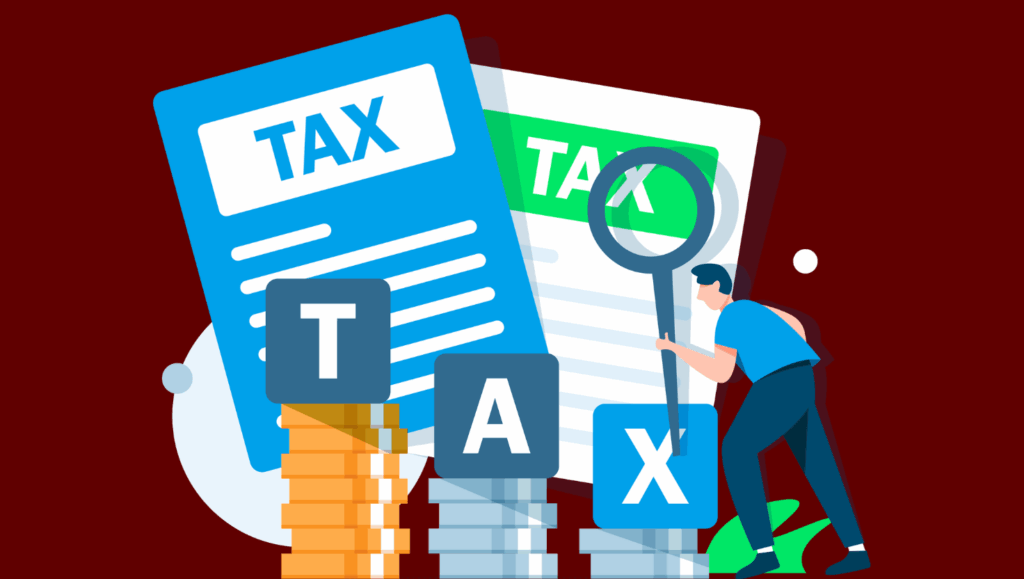
Public charging stations! With 6 million EVs and 26,367 chargers by August 2025, the green dream faces a tax hurdle. Why does public EV charging cost more than home?
What if your eco-friendly commute comes with a hidden tax sting? Imagine plugging into a public charging station, expecting only an electricity bill, only to be hit with an unexpected tax. Curious yet? India’s EV revolution is surging, with over 6 million EVs on the roads by August 2025. Yet, a fiscal surprise lurks at public chargers. This blog unveils the GST on EV charging in India, diving into rates, impacts, and the latest data.
The Rise of EVs in India: A Green Surge
India’s EV market is electrifying. Sales soared to 1.5 million units in FY 2024-25, a 40% leap from the previous year. The government’s push is relentless—FAME-II, extended with Rs 10,900 crore, has subsidized 7,432 public chargers with Rs 800 crore. Public charging stations have exploded fivefold since FY22, reaching 26,367 by July 2025. Yet, with one charger per 235 EVs, the infrastructure lags. Maharashtra leads with 3,079 stations, followed by Delhi (1,886) and Karnataka (1,728). The EV charging infrastructure in India is expanding, but a tax shadow looms. What’s the catch?
What Exactly is GST on EV Charging?
The Goods and Services Tax (GST) streamlined India’s taxation since 2017. For EVs, it’s a mixed bag. Electric vehicles enjoy a 5% GST rate, slashed from 12% in 2019. EV chargers and charging station equipment? Also 5%, down from 18%. But here’s the twist: charging your EV at a public station isn’t just about electricity. Is it a simple power supply, exempt from GST? Or something more? Hold your breath—it’s classified as a “service” under SAC 998714, “other supporting transport services.” The result? A hefty 18% GST on the entire charging fee. Shocking, right?
Why GST on Public EV Charging Services?
Electricity itself is GST-exempt, so home charging escapes tax. But public EV charging is different. Operators provide infrastructure, maintenance, and app-based convenience, making it a composite service. The Central Board of Indirect Taxes and Customs (CBIC) clarified in 2022: it’s not a mere electricity sale but a taxable service at 18%. Despite industry pleas for a 5% rate in Union Budget 2025, the status quo persists. NITI Aayog pushes for a uniform 5% to boost adoption, but as of August 2025, the 18% GST on EV charging services stands firm, raising costs and sparking debates.
Latest Data: EV Charging Rates and GST Impact
Charging costs vary widely. The Ministry of Power recommends Rs 4/kWh for slow charging and Rs 7/kWh for fast. In reality, metro rates range from Rs 10-25/kWh, plus 18% GST. For a Rs 20/kWh charge, add Rs 3.6 GST, totaling Rs 23.6/kWh. For a 50 kWh session, that’s Rs 180 extra in tax. Frequent users could face thousands in annual GST costs. Compare this to petrol, which sits outside GST, highlighting the irony of a “green tax.” Budget 2025 offered no GST relief but extended Basic Customs Duty (BCD) exemptions on battery components. With only 10-15% station utilization, the GST on electric vehicle charging tax in India remains a bottleneck.
The Suspenseful Paradox: Promotion vs. Taxation
India promotes EVs aggressively. The PM E-DRIVE scheme allocates Rs 2,000 crore for 10,000+ chargers. Yet, the 18% GST on charging services contradicts this push. Industry leaders demand a uniform 5% GST across EVs, batteries, and charging. Social media buzzes with frustration: “Promoting green while taxing infrastructure?” NITI Aayog notes public charging is four times costlier than home charging due to GST. The inverted duty structure—18% on batteries, 5% on EVs—blocks refunds, squeezing operators. Will the 54th GST Council in 2025 address this? The suspense builds.
State-Wise Variations: A Tax Twist
While central GST is uniform, states add flavor. Chhattisgarh offers 100% SGST rebates on fast chargers. Haryana and Uttarakhand waive road taxes for EVs. Gujarat exempts electricity duty for charging. Yet, the central 18% GST on charging services remains non-negotiable. In Bengaluru, despite high EV penetration, poor infrastructure and taxes slow sales. The PM E-DRIVE scheme pushes standardized tariffs, but the GST on EV charging stations persists as a hurdle. State incentives add intrigue, but the core tax lingers.
Impact on EV Adoption: Numbers Tell the Tale
EV penetration hit 6.5% in 2025, with a 30% target by 2030. But charging anxiety persists—one public station per 235 EVs. The 18% GST inflates costs, deterring long trips. Commercial fleets face 15-20% higher operational expenses. Surveys suggest 55% of potential buyers hesitate due to charging costs. In cities like Bengaluru, taxes and sparse infra curb growth. NITI Aayog estimates a 5% GST could cut costs by 13%, boosting adoption. The GST on electric vehicle charging tax in India is a clear roadblock in the green race.
Future Outlook: Will GST Rates Drop?
The EV industry is optimistic for change. Budget 2026 might align GST at 5% across the EV ecosystem. NITI Aayog recommends infrastructure status for chargers and a 5% GST on services. Public-private partnerships (PPPs) and hot-spot models are proposed to scale infra. By 2030, India needs 1-2 million chargers. API-driven real-time charger data is on the horizon. A GST cut could slash costs by 13%, making public charging viable. Will the government act? The anticipation is electric.
Practical Tips for EV Owners Amid GST
Navigate the GST maze smartly. Opt for home or society charging—GST-exempt and cheaper. Use apps like PlugShare, Tata Power, or Pulse Energy to find stations with transparent, GST-inclusive rates. Business owners can claim input tax credit (ITC) on charging services if used for commercial purposes. Considering a charging franchise? Setup costs range from Rs 1-50 lakh, with 5% GST on equipment and subsidies up to 60%. Maintenance services, however, carry 18% GST. Plan wisely to dodge the public EV charging tax sting.
Global Comparison: India’s GST vs. the World
Globally, India’s 18% GST on EV charging is steep. Europe applies 5-20% VAT but offsets with subsidies. The US offers tax credits for stations and no federal sales tax on energy. China keeps charging taxes low with heavy subsidies. India’s high GST hinders competitiveness. A uniform 5% rate could align India with global green mobility leaders, boosting the EV charging infrastructure in India. The tax disparity adds suspense to India’s EV ambitions.
Environmental Angle: Tax vs. Green Goals
EVs cut emissions by 50% compared to internal combustion engine vehicles. But the 18% GST on public charging discourages its use, pushing owners to home charging. This slows infrastructure growth and fuels range anxiety. NITI Aayog warns that tax relief is critical for India’s net-zero 2070 goal. The GST on EV charging stations creates a paradox: taxing the very infrastructure meant to drive sustainability. Will fiscal policy align with environmental goals? The question hangs in the air.
Operator Perspective: Business Amid Tax
Charging franchises are booming, led by Tata Power and Bolt Earth. But the 18% GST squeezes margins, with stations seeing just 10% utilization due to high end-user costs. Subsidies aid setup, but operational taxes hurt profitability. Budget 2025’s Rs 2,000 crore for chargers signals opportunity, yet the GST on EV charging services remains a challenge. For operators, navigating this tax is as critical as expanding infrastructure.
Consumer Stories: Real-Life GST Surprises
Raj in Delhi plugged into a public station and gasped at an 18% GST on his bill. Priya in Mumbai switched to home charging to avoid the tax hit. Online forums buzz with queries about “GST on EV charging stations,” reflecting widespread confusion. Awareness is key—understanding the public EV charging tax helps owners plan smarter. These real-life shocks fuel the demand for clarity and reform.
Policy Recommendations: A Path Forward
To electrify India’s future, policy must evolve. Reduce GST on charging services to 5% to align with EVs and chargers. Offer temporary waivers to spur infrastructure. Incentivize public stations with infrastructure status. Streamline tariffs and promote PPPs. Align fiscal policy with net-zero goals. The industry awaits action—will the 54th GST Council deliver? The EV charging GST in India needs urgent reform to keep the green dream alive.
Final Thought: Embrace EVs, Navigate Taxes
Public EV charging is convenient, but the 18% GST is a fiscal reality. With 6 million EVs and 26,367 stations by August 2025, India’s green surge is undeniable. Yet, the GST on electric vehicle charging tax in India demands smarter navigation. Home charging, ITC claims, and franchise opportunities offer workarounds. Stay curious, drive green, and watch for tax reforms. The future of EV charging in India is electric—will the tax system catch up?
Sources:






























